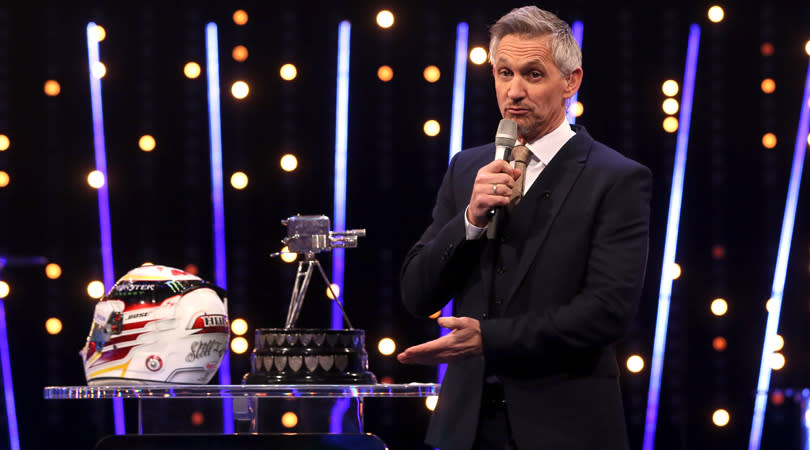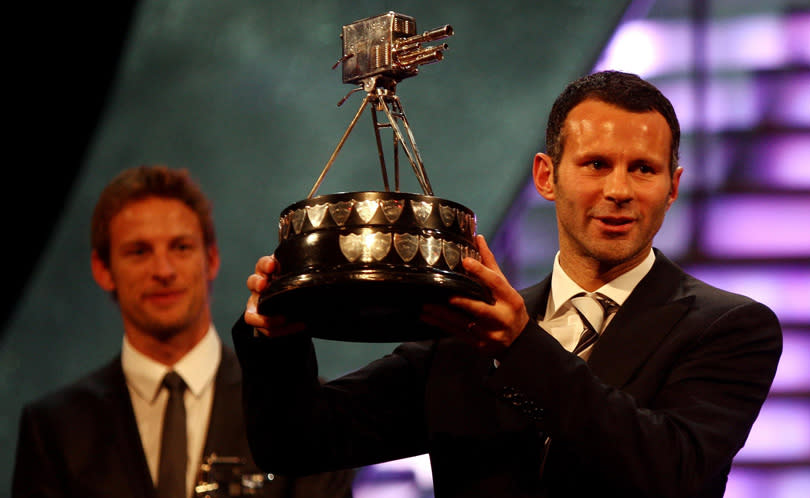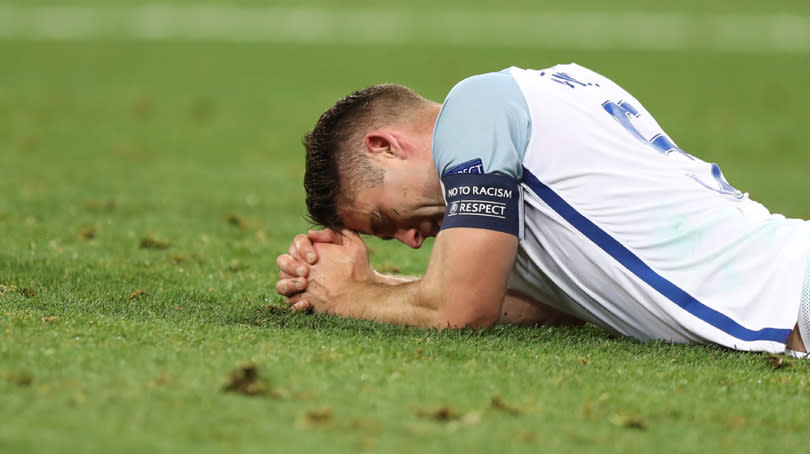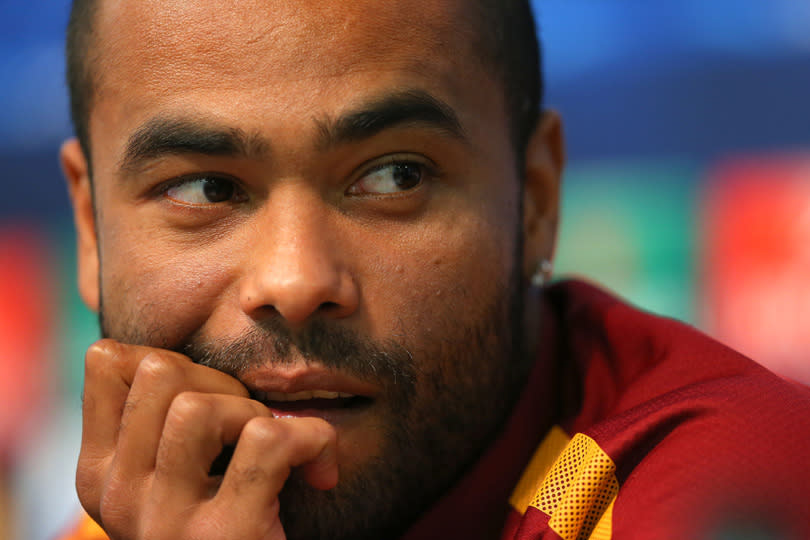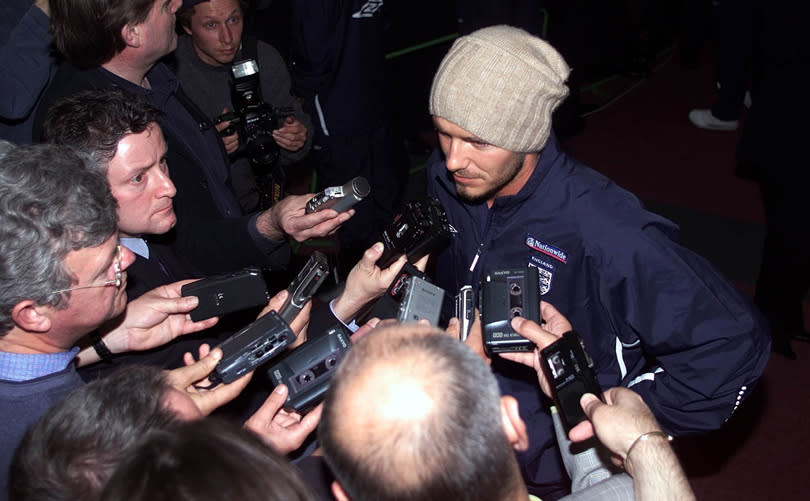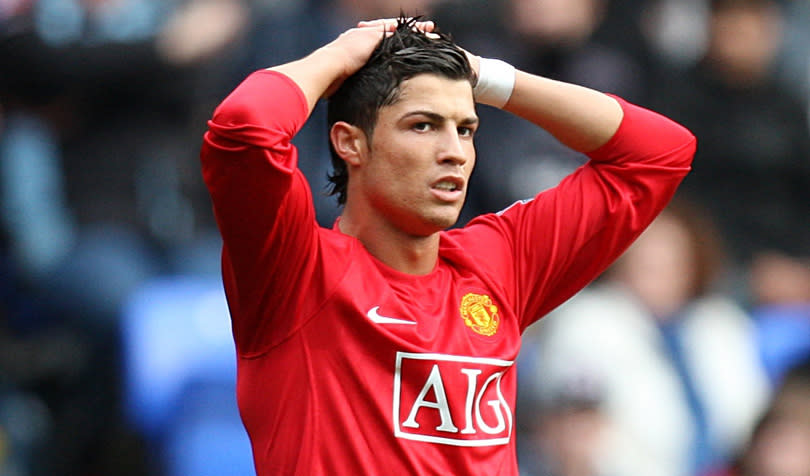5 reasons why footballers fail at BBC Sports Personality of the Year
It’s not bias when we say that football is clearly our national game. There’s pockets of mass popularity for other sports – rugby league in parts of northern England, rugby union in Wales, tennis for about two weeks in the posh London postcodes.
But it’s football that dominates the sports pages, the live attendance figures and the fight for TV rights. With all due respect, BT and Sky aren’t battling it out for permission to beam the World Figure Skating Championship live into our homes.
Yet despite football’s position as the undisputed champ of UK sport, its record in the BBC’s end of year gala do is (excuse the pun) very spotty. Just five footballers have won the main award and one of those – Ryan Giggs in 2009 – was widely viewed as a curious sort of lifetime achievement gong in a slow sporting year.
Tennis, Formula 1 and athletics all have a better winning record than football, while boxers will overtake footballers if – as is widely expected – Anthony Joshua wins on Sunday. Even figure skating genuinely isn’t too far behind football with three winners.
So why isn’t football’s mass appeal reflected more often on the SPOTY stage?
1) England’s woes
The Sports Personality of the Year Award has a strong bias toward sport if there's been a massive, non-annual event in a particular year. A summer Olympics is the prime example, as Brits with gold medals understandably fill the shortlist.
This should be to football’s advantage as every two years, a European Championship or World Cup dominate the sporting landscape. It explains the SPOTY victories for Bobby Moore in 1966, Paul Gascoigne in 1990 and Michael Owen in 1998, rewarded for that magnificent dive (erm, and goal) against Argentina.
Yet England’s dismal major tournament displays of recent years mean players return to blighty having reduced their chances of a SPOTY win rather than increased them. Of course, three other football nations make up the British sporting landscape – and Gareth Bale was nominated after Wales’s terrific run to the semi-finals of Euro 2016.
However as Bale garnered just 10,000 votes – approximately 100,000 votes less than equestrian sensation Nick Skelton – it’s clearly not the only problem.
2) Overexposure
On occasion, people see SPOTY as a chance to shine a spotlight on stars from less celebrated sports. As well as our favourite horse dancer Skelton (third in 2016), there’s been outright wins for eventing (Zara Phillips in 2006) and rowing (Steve Redgrave in 2000), plus runners-up spots for sailors, swimmers and rugby league stars.
Football and footballers hog the headlines all years, every year, so it's understandable that some would rather see other sporting stars be given their moment in the sun. However we’d argue that women’s football – so often in the shadow of its male counterpart – was poorly rewarded when Lucy Bronze finished plum last in the SPOTY standings for 2015, despite her doing the below at the World Cup as England reached the semi-finals. Bah!
3) Bias against team sports
One factor that impacts footballers no matter their gender is a bias against team sports. Simply, it’s easier to pick out and reward an individual sports person, hence the success of athletes – runaway leaders with 17 total awards, while F1 drivers are in second place with seven wins.
A footballer can have an incredible individual year – such as this year’s nominee Harry Kane, scorer of 40+ goals for club and country in 2017. Yet despite football’s modern cult of the individual, with some fans caring more about players than they do clubs (Exhibit A, B, C and D: the endless Messi vs Ronaldo debate), football is still a team sport.
Simply, unless England or Tottenham had done something truly spectacular, Kane was always going to be crushed by a titanic blow from an individual sportsperson like Anthony Joshua. Rather you than us, Harry.
4) Lack of lovability
Here’s one we’d pick a bone with. There’s plenty of likeable footballers out there – the aforementioned Harry Kane or Peter Crouch, as we can vouch for ourselves among them. Yet the broader public perception of footballers is that they're super-rich, spoiled dullards – which, when the word ‘personality’ is literally in the title of an award, really doesn’t help matters.
It’s true that very few footballers overflow with charisma in press conferences or the dreaded post-match interview. However that’s partly a combination of their frequency and players being media trained into saying nothing that the press can whip up into a controversy. Hence bland is king.
We might argue that footballers aren’t as bad as is made out – and that if the paparazzi followed, say, rowers around all day and they had a microphone shoved under their nose 50 times a year just after they got out of a boat, they might grow a bit weary of it too. But a lack of likeability definitely costs footballers.
5) People don’t follow the rules…
Here’s a fact you may not know: you don’t need to be British to win BBC Sports Personality of the Year. We don't even mean the Overseas Sports Personality award won by the likes of Roger Federer and Usain Bolt – that’s for someone based outside of Britain.
The rules for the overall main SPOTY prize state that: 'The recipient must either be British or reside and play a significant amount of their sport in the United Kingdom.' That’s why an Italian has finished in the top three (jockey Frankie Dettori in 1996), as has a New Zealander (Barry Briggs for speedway, naturally, in both 1964 and 1966).
Clearly, there’s a host of top non-British footballers who ply their trade in Premier League, reside in the UK and are therefore wholly eligible for the award. Take Cristiano Ronaldo in 2008 for example, the year he won his first Ballon d’Or and dazzled as Manchester United won the Premier League and Champions League.
Yet Ronaldo didn’t make the shortlist of 10; the best footballer on the planet squeezed out for all of four cyclists and a sailor. That said, the event was held in Liverpool, so maybe a preening Ronnie on stage would have meant a downbeat end to the night. But the point stands: perhaps either change the rules so it’s officially just Brits or the FourFourTwo campaign starts now – Kevin De Bruyne for Sports Personality of the Year 2018.

 Yahoo Sport
Yahoo Sport 






































